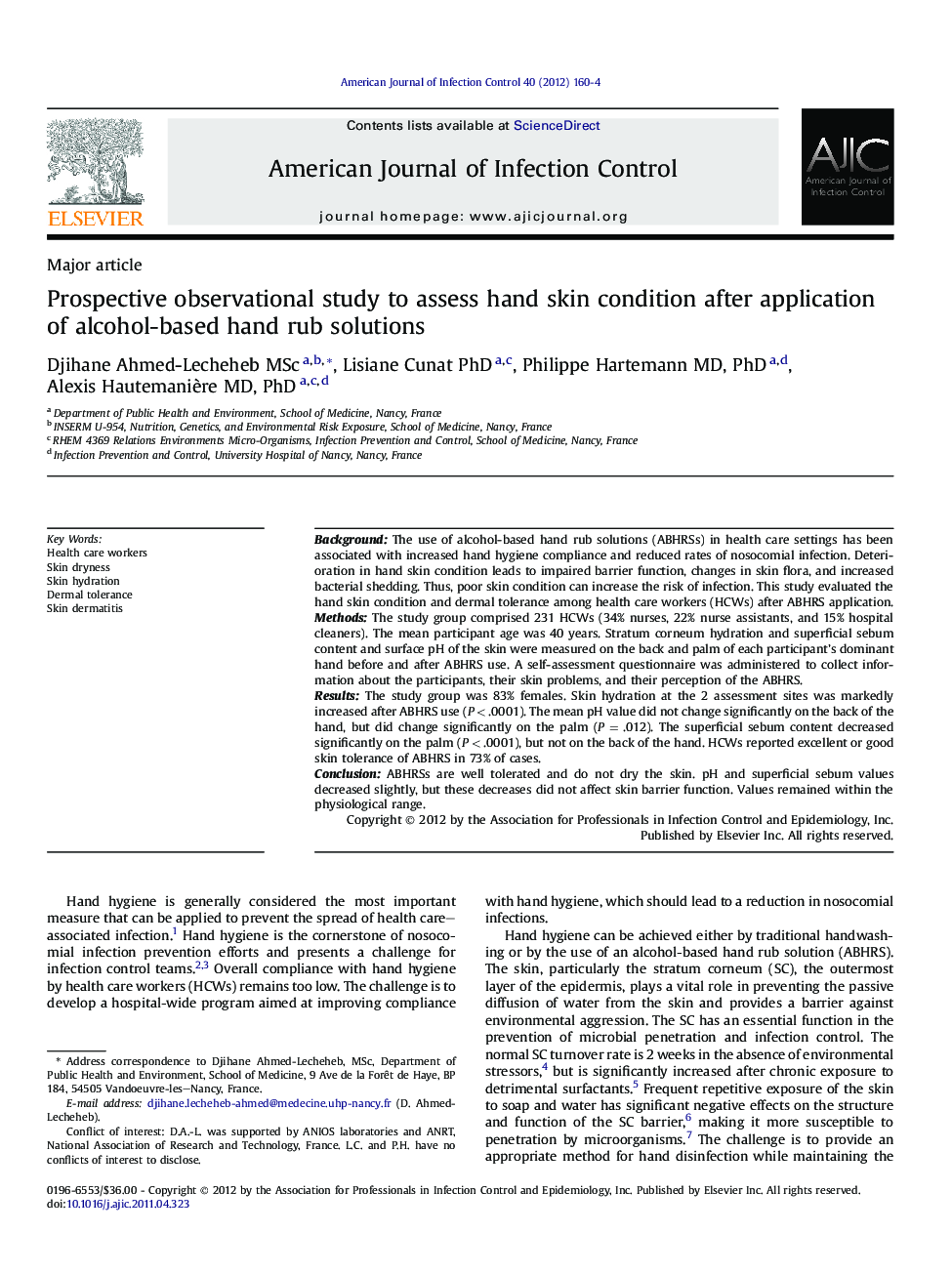| Article ID | Journal | Published Year | Pages | File Type |
|---|---|---|---|---|
| 2638126 | American Journal of Infection Control | 2012 | 5 Pages |
BackgroundThe use of alcohol-based hand rub solutions (ABHRSs) in health care settings has been associated with increased hand hygiene compliance and reduced rates of nosocomial infection. Deterioration in hand skin condition leads to impaired barrier function, changes in skin flora, and increased bacterial shedding. Thus, poor skin condition can increase the risk of infection. This study evaluated the hand skin condition and dermal tolerance among health care workers (HCWs) after ABHRS application.MethodsThe study group comprised 231 HCWs (34% nurses, 22% nurse assistants, and 15% hospital cleaners). The mean participant age was 40 years. Stratum corneum hydration and superficial sebum content and surface pH of the skin were measured on the back and palm of each participant’s dominant hand before and after ABHRS use. A self-assessment questionnaire was administered to collect information about the participants, their skin problems, and their perception of the ABHRS.ResultsThe study group was 83% females. Skin hydration at the 2 assessment sites was markedly increased after ABHRS use (P < .0001). The mean pH value did not change significantly on the back of the hand, but did change significantly on the palm (P = .012). The superficial sebum content decreased significantly on the palm (P < .0001), but not on the back of the hand. HCWs reported excellent or good skin tolerance of ABHRS in 73% of cases.ConclusionABHRSs are well tolerated and do not dry the skin. pH and superficial sebum values decreased slightly, but these decreases did not affect skin barrier function. Values remained within the physiological range.
